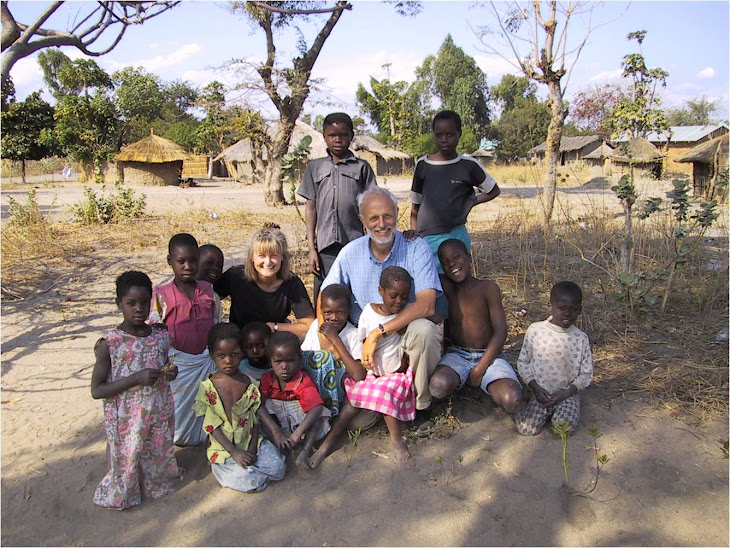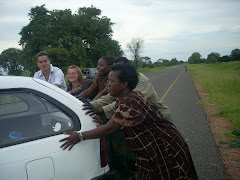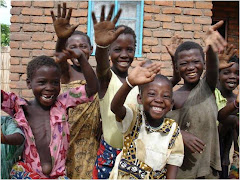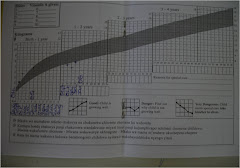Have your heard or do you remember the old camp song with the above line. And the next line is “and they wave back to me”. I think of this often in this little corner of the world, whether we are driving the car or running on the village dirt road at 5:10 am. (You run just at daybreak here to miss the morning sun). We are surrounded by villagers who live in view just outside our thatched roof, baked brick, running lake water house. They really know how to smile and meet you with warm Chichewa or Chiyao greetings. We are known around here, but even strangers are given the same reception. Travelers from the counties that surround Malawi comment on this country’s hospitality.
This has led their president to remark, “we are a rich people, just poor in resources”. And poor they are …even the professionals. Clinical officers ( three of four years of training after secondary school), the backbone of the health care system in the country, earn about $180/month; teachers - $150/month; House keepers and hotel workers - $40/month. Living is expensive by their standards. A family of six, two adults and four children, eat a 50 kilo bag of chimanga (maize), their staple, per month. A fifty kilo bag costs $20.
Everyone, including the professional class must have a garden for food to supplement their income. If there are two working parents, they either work in their gardens before their day jobs or hire someone to work their garden for them. And there are no mechanized farming machines. The thousands and thousands of hectares that one sees planted with maize this time of year, is done with a large bladed hoe called a Mkhasu . The maize will be left to dry on the stalk and then harvested and stored by their village home and it must last the rest of the year. A bad rainy season (December, January, and February) and there is famine by this time next year. There are no safety nets. Just now everyone is worried. They had promising early rains, the maize is tasseled, but they have not had any significant rain for the last week. A poor crop now and they will have a repeat performance of the famine of 2002 and 2005.
We find among the Malawians folks who are just as clever, intelligent, and industrious as anyplace in our country. So why are they so poor and we are so rich? They were born in Malawi and we were born in the United States. It is an accident of birth.
Their kindness to us is almost beyond description. We attend a little village Anglican Church, the one that sponsors the HIV/AIDS support group that I mentioned before. Last Sunday night, long after dark, two of the church leaders on one motorcycle stopped by our cottage and said the elders of the congregation have decided to have a church supper in our honor tomorrow night. Yesterday, Catherine , one of the community field workers (the bed net lady), invited us to lunch at her somewhat upgraded village house for a traditional meal of nsima (a thick maize porridge) and ndiwo ( relish dish into which the nsima is dipped). All is eaten by hand after you are presented with a pitcher of water and basin to wash you hands (and the nsima is less likely to stick if your hands are
wet- a little trick we have learned over the years). For our village neighbors just around our cottage in return for a clinic visit on our porch, we receive two ears of maize or maybe an egg or two.
Malawians are very generous, and they are quite open.
After you are here for a while, and especially if you are a repeat visitor, you begin to hear the “secrets of the village”. This is about this time that Ruth and I say it is time to return home. The secrets used to be the whispered rumors of who was suspected to be HIV positive. Fortunately now this is becoming more public knowledge, treatment is available, and the community is coming to understand that this is no longer a death sentence.
Now the whispers are problems with family members, long standing disputes between whom we had assumed were friends, husbands who have cheated on their wives (sounds like just where we came from). It is information we just don’t need to know, but it reminds us of the universal nature of human relationships.
As I write this note at our almost open air dining room table, seeing a few goats and villagers on their way home and Cape Turtle doves singing in the distance, I am reminded how very much we feel at home here and how this largely forgotten country has influenced our lives.
We started our marriage here, learning how to negotiate our relationship that has served us well over the years. It changed our careers. Most of you know that neither of us had considered health care until our Peace Corps experience here in the 60’s.
Now, our annual trips for us refresh life’s priorities. In all the “noise” of our everyday lives, we tend to forget what is truly important: good health; loving relationships; adequate food, water, clothes and a dry roof; opportunities for an education and a spiritual life. Adequate but not excessive is all that is needed. This is a lesson we relearn each year.
Monday, March 15, 2010
Subscribe to:
Post Comments (Atom)







No comments:
Post a Comment